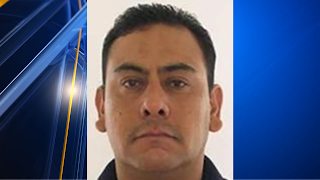"Sol Prendido" for Borderland Beat
A former Sinaloa cartel member and associate of the criminal organization described a close relationship between law enforcement agencies and the notorious cartel in the mid-2000s.
Recollections from the testimonies come as Arturo Shows Urquidi and Mario Alberto Iglesias Villegas, who are cartel members, are on trial this week in U.S. federal court in El Paso. The trial is in its third day after jurors were selected on Monday.
The trials are part of a large indictment by a federal grand jury that included Sinaloa cartel leaders Joaquin “El Chapo” Guzman and Ismael “Mayo” Zambada Garcia. On April 24, 2012, the leaders and 22 other members of the cartel were charged with criminal activities ranging from trafficking drugs to conspiracy to kill in a foreign country.
On Wednesday, Ricardo Rodriguez, a former cartel member nicknamed “Yogi” described a working relationship between the Sinaloa cartel and Juárez municipal police and state police. He said David Sanchez-Hernandez, a former sergeant with the municipal police, helped stash cocaine and drug money in a safe house in the Campestre neighborhood in Juárez.
He noted that fellow cartel members would wrap $10,000 in stacks of $100 bills and that they’d be labeled with numbers that correlated with payoffs.
Rodriguez’s testimony provided a more detailed account of the day-to-day operations of the cartel in its operations before its war with the Juárez cartel.
Urquidi, dressed in a grey suit, watched from his seat along the westernmost wall inside the courtroom.
Rodriguez told the court a man named Sergio Garduno Escobedo was a leader for the Sinaloa cartel in the mid-2000s. Garduno, a former station commander for the Chihuahua State Police, paid the tax on behalf of the Sinaloa cartel to the Juárez cartel for permission to move drugs through the region, according to court documents.
Garduno’s operation included warehouses and security forces that oversaw thousands of kilograms of cocaine shipped into the United States for distribution, court documents state.
Rodriguez explained the warehouses housed at least three tankers that would be lined with cocaine to be transported in the U.S. And, vehicles were prepped with kilos of cocaine that could be pulled out from in-between the metal lining.
Another Mexican police officer testified before Rodriguez, confirming a link between law enforcement agencies and the cartel. He said he participated as a lookout in operations to assassinate individuals. He had also testified to moving weapons for the criminal organization.
When asked if his decisions impacted individuals, he replied, “Indirectly, through my actions, yes.”
Rodriguez, was a member of the Sinaloa cartel between 2005 and 2010, according to his testimony. He told prosecutors he surrendered to DEA agents wanting to right his wrongs because of his fear of God.
He turned himself in Calexico and was later sentenced to more than 30 years in federal prison. The former cartel member told prosecutors he was seeking a reduction in his sentence, now at the age of 41.
Rodriguez wore a red jumpsuit and was in chains when he sat at the witness stand. He put his hand up before judge Frank Montalvo promising to tell the truth.
“I want to repay some of the damages I did,” he said. “Repay for what I did.”
Before giving testimony, he was asked to identify Urquidi, which he did, pointing over to him and commenting on his attire.
Rodriguez told prosecutors about his involvement in the crime scene in Juárez, where he got involved at the age of 18. He explained his family had been a part of cartel activity and that few opportunities are available in Mexico.
He sought a nice home, cars and power, he told prosecutors, and he got them. At the height of his involvement with the cartel, Rodriguez had five houses and 30 cars and plenty of income from the cartel, according to his testimony.
Rodriguez and Sanchez became acquainted moving drugs in 2003 into the U.S. Sanchez, a sergeant in the Juárez police department, would help provide security and Rodriguez would move drugs.
Rodriguez said he got involved with the Sinaloa cartel in 2004, after running into Sanchez again. They began trafficking cocaine to clients in Miami with various individuals assisting him to get drugs past ports of entry.
The two would move 150 kilos of cocaine every 15 days, which was worth about $2 million. Rodriguez would make a kilo, he testified. Once over into the U.S., the cocaine would be taken to a home and loaded into trucks. The load would be shipped separately to lower the risk of all the drugs being seized by federal authorities.
Rodriguez says he recalls a night in 2005 where 40 members of the Sinaloa cartel met at a home in Juárez. And, major members including Garduno and high profile members, many in the police, would discuss operations












Such intriguing stories
ReplyDeleteCuruption at it's highest levels, can't trust the police
ReplyDeleteCuruption still continues as Obrador and his brother receive, bribes from Cartels to continue working freely.All the while innocent citizens get killed.
ReplyDeleteDude turns himself in yet he gets sentenced to 30 years!!!!!!!😱😱😱
ReplyDeleteMeanwhile snitches, rapists and paedophiles are In and out within 15 years 🤦🏻♂️
DeleteIt didn't say but he is getting less than 30, for bargain of information, and people behind it.
Delete